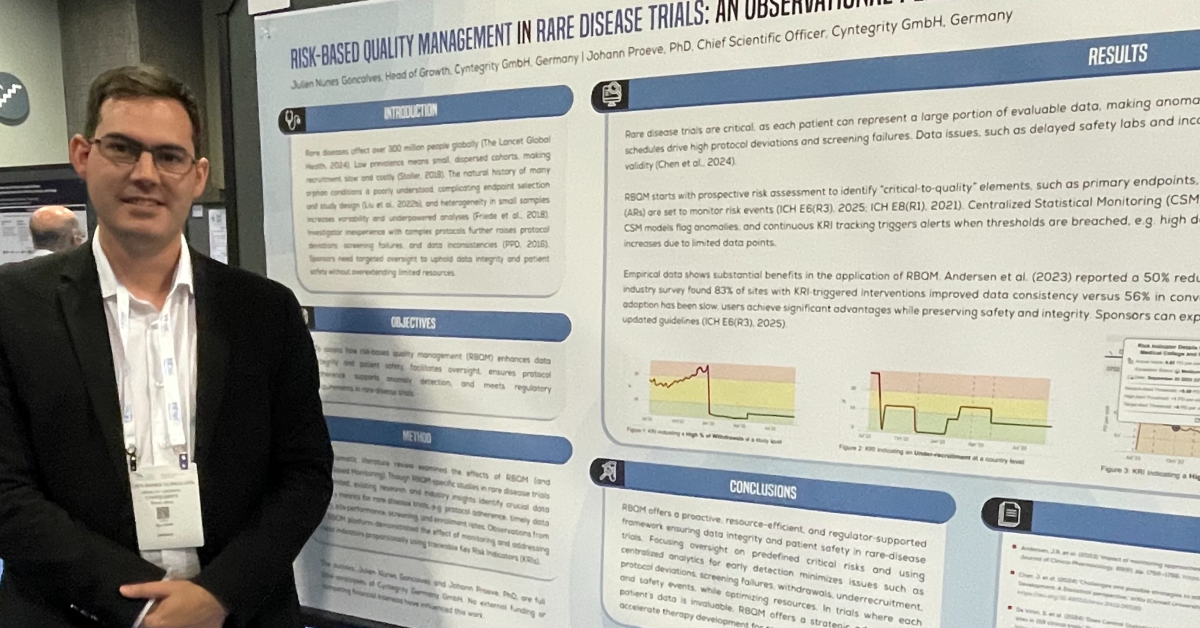COVID-19 Accelerated Interest In Decentralized and Hybrid Clinical Trials
The COVID-19 pandemic has accelerated alternative distribution strategy adoption to facilitate "new normal" decentralized and hybrid trial concepts. Capturing the supply chain risks associated with these more flexible distribution approaches requires synergy among people, processes, and technology. Former Senior Project Manager at GKM, Anke Mueller, shares with you how pandemic-induced supply chain risk data knitted together in a single RAC tool enabled her study team to pivot quickly and continue their studies in a timely fashion.
User experience report
Management of Investigational Medicinal Products (IMP) is an integral aspect of clinical trial management. In the past, sponsors of clinical studies have orientated themselves towards the international regulatory requirements (e.g., ICH-GCP, FDA) to establish structured processes for supplying and handling IMPs. With the implementation of ICH E6(R2) in Europe in June 2017, clinical trial teams are now required to implement a more robust risk management process before starting clinical trial activities and tasked to pre-define potential risks concerning IMP Logistics and Supply Chains. The following experience report illustrates how the MyRBQM® system helped to manage the risks caused by the COVID-19 Pandemic.
What was the challenge?
Under standard conditions, clinical trial teams ask common questions about the potential risks in the supply chain:
| Question for Discussion | Considerations | Potential Mitigation Actions |
|---|---|---|
| What is the route of administration? | If low compliance of IMP at home repeatedly occurs due to the patient’s cognitive status (e.g., cognitive impairment), then the study’s low explanatory power/validity may result. | Training/demonstration of site staff, provide simplified instructions in lay language, process monitoring. |
| Does the IMP require special delivery rules? | If investigational supply is held up at customs at non-EU countries due to lack of adequate import licenses and paperwork, then delay in site start-up, then delay in subject recruitment may result. | Appropriate planning for supply chain-quantity, process monitoring. |
| Is there any risk related to the availability of the Investigational Product? | If Investigational Product is not available at the site before Site Initiation due to distribution problems in participating countries (EU and non-EU sites), then delay in study start-up may result. | Appropriate planning for supply chain quantity, proper monitoring of IMP from start to end. |
Pre-pandemic, these types of questions were merely a formality due to the contracted couriers’ well-established, fully integrated supply chains and defined processes for administering the IMP to the patients at the investigational sites.
However, the unforeseen and rapid emergence of the pandemic necessitated timely problem solving by the clinical trial management to ensure trial continuation. And that the supply of trial participants with IMP would follow the newly introduced Guidance on the Management of Clinical Trials during the COVID-19 Pandemic by the Global Health Authorities.
How was this risk addressed?
The first questions came up during the regular review of the MyRBQM® system within the clinical trial management team. Due to the fast-changing COVID-19 measures in the various countries, it soon became apparent that on-demand reviews were the only way to monitor the risks sufficiently.
We could no longer fall back on the KRIs, and Tolerance Limits defined pre-pandemic, as until then, modern clinical research had not had any experience with pandemic situations. A completely new situation had arisen, and the pandemic development affected all parts of the supply chain critically:
- Restricted international cross-border cargo transport over land as well as via air
- Curfews in various participating countries
- The kind of Urgent Safety Measures allowed by the regulatory authority
How was the MyRBQM® system used?
We analyzed the situation with the help of the MyRBQM® system and reassessed the situation based on the previously defined Questions for Discussion:
| Question for Discussion | Considerations | Potential mitigation actions |
|---|---|---|
| Is there any risk related to the availability of the Investigational Product? | What should be done if the drug supplier can no longer ship IMP to the sites via central or local depot? | Ad hoc evaluation of available stock at depot/site in all participating countries.
Expedited re-supply of high recruiting sites. Postpone Initiation of new sites until cargo transport ran smoothly again. |
| Is there any risk related to the availability of the Investigational Product? | Are IMP re-distributions between sites allowed? | Clarification with regulatory Authorities on Urgent Safety Measures.
Transfer of IMP between sites. |
| Is delivery to subjects’ homes allowed? | What happens if patients cannot come to regular visits due to restrictions (e.g., Patient/Hospital is put under quarantine)? | Clarification with regulatory Authorities on Urgent Safety Measures.
Distribution of IMP to the patient via local courier. |
- Study Management established appropriate measures for each country in line with the underlying regulations and maintained the ability to bring IMP to the investigational sites and patients.
- The risk and mitigation actions library functionality of the MyRBQM® system helped the clinical trial management to collaboratively define pandemic-specific risk more easily in context with the IMP supply and handling for new studies planned to get started under a pandemic situation.
ABOUT THE AUTHOR
Anke Mueller has 20+ years of experience in Clinical Research (Sponsor and CRO side) and a long track record of skillful planning and managing international Phase 1 – 4 clinical trials. Over the last years, Anke worked extensively with the Cyntegrity MyRBQM® Portal and successfully completed the RBQM Essentials White and Belt courses offered by the MyRBQM® Academy in March 2020. Currently, Anke holds a position as Senior Clinical Trial Manager at AiCuris Anti-infective Cures AG.






